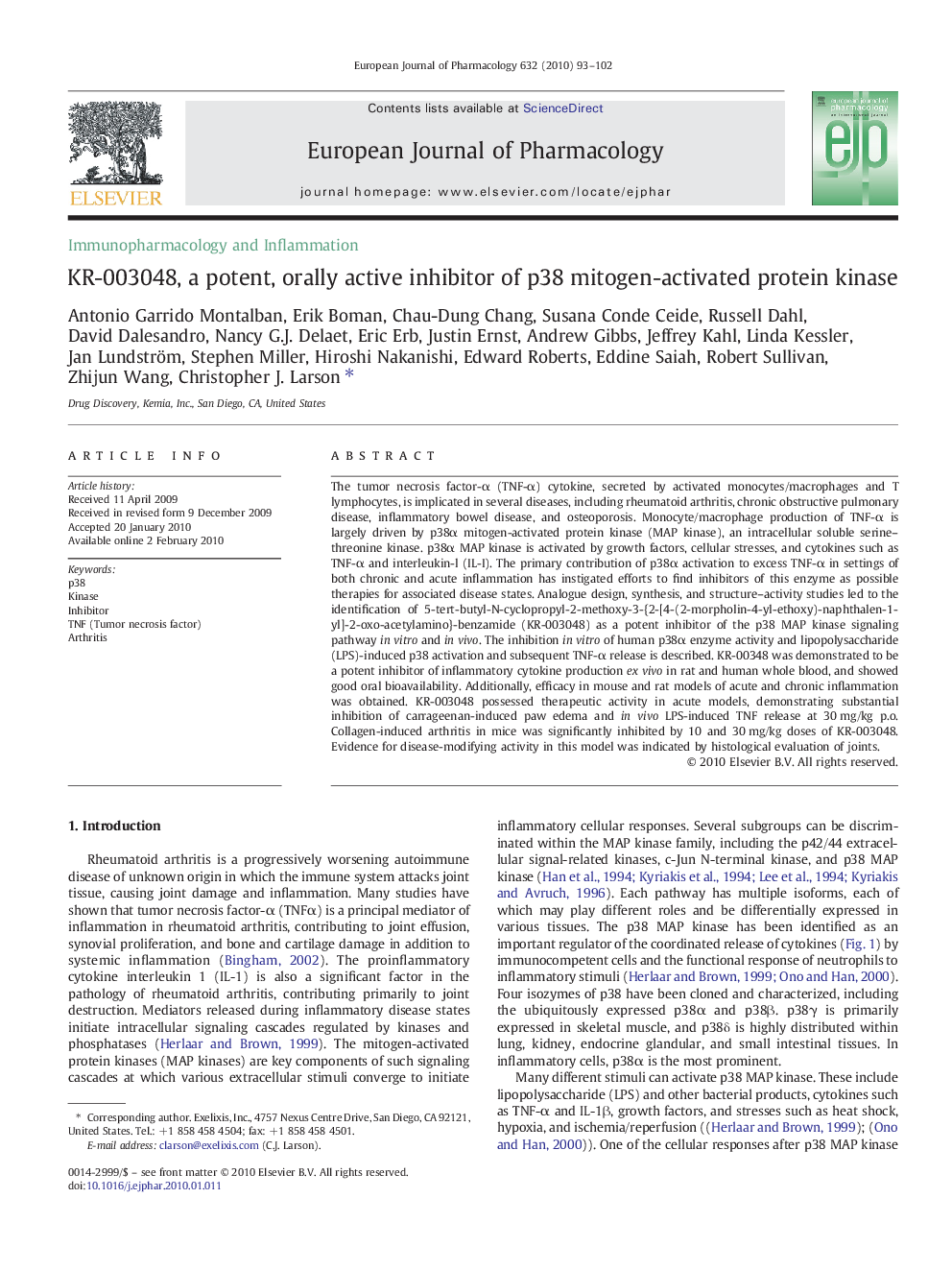| Article ID | Journal | Published Year | Pages | File Type |
|---|---|---|---|---|
| 2533685 | European Journal of Pharmacology | 2010 | 10 Pages |
The tumor necrosis factor-α (TNF-α) cytokine, secreted by activated monocytes/macrophages and T lymphocytes, is implicated in several diseases, including rheumatoid arthritis, chronic obstructive pulmonary disease, inflammatory bowel disease, and osteoporosis. Monocyte/macrophage production of TNF-α is largely driven by p38α mitogen-activated protein kinase (MAP kinase), an intracellular soluble serine–threonine kinase. p38α MAP kinase is activated by growth factors, cellular stresses, and cytokines such as TNF-α and interleukin-l (IL-I). The primary contribution of p38α activation to excess TNF-α in settings of both chronic and acute inflammation has instigated efforts to find inhibitors of this enzyme as possible therapies for associated disease states. Analogue design, synthesis, and structure–activity studies led to the identification of 5-tert-butyl-N-cyclopropyl-2-methoxy-3-{2-[4-(2-morpholin-4-yl-ethoxy)-naphthalen-1-yl]-2-oxo-acetylamino}-benzamide (KR-003048) as a potent inhibitor of the p38 MAP kinase signaling pathway in vitro and in vivo. The inhibition in vitro of human p38α enzyme activity and lipopolysaccharide (LPS)-induced p38 activation and subsequent TNF-α release is described. KR-00348 was demonstrated to be a potent inhibitor of inflammatory cytokine production ex vivo in rat and human whole blood, and showed good oral bioavailability. Additionally, efficacy in mouse and rat models of acute and chronic inflammation was obtained. KR-003048 possessed therapeutic activity in acute models, demonstrating substantial inhibition of carrageenan-induced paw edema and in vivo LPS-induced TNF release at 30 mg/kg p.o. Collagen-induced arthritis in mice was significantly inhibited by 10 and 30 mg/kg doses of KR-003048. Evidence for disease-modifying activity in this model was indicated by histological evaluation of joints.
